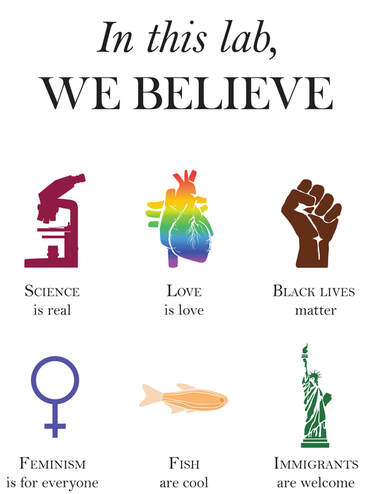The Brooks lab is a diverse community of engaged interdisciplinary scholars who work towards environmental conservation solutions. Our work cross-cuts the natural and social sciences and includes the realms of Antarctic krill modeling, fish ecology, seabirds, climate change, blue carbon, and marine conservation (including protected areas) from local to global scale.
CURRENT POSTDOCTORAL SCHOLARS
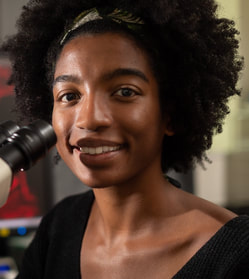
Peyton Thomas
Contact: Peyton.Thomas[at]colorado.edu
Peyton Thomas is a postdoctoral associate in the Institute of Arctic and Alpine Research (INSTAAR) and Environmental Studies program at the University of Colorado at Boulder. Before her postdoctoral studies, she received her B.S. in Environmental Science at Baylor University where she studied microplastic ingestion and the ecology of coastal forage fishes along the Texas coast. She went on to pursue a Ph.D. in Biology and Marine Biology at the University of North Carolina at Wilmington, where her research focused on musculoskeletal growth and metabolic maintenance of juvenile sharks and skates under climate change-projected thermal regimes as well as hypoxia tolerance in coastal minnow fish species. Her research interests include marine conservation, organismal physiology and ecology under current and projected environmental variability, climate justice, and environmental policy. She is currently working with the Arctic Rivers project, where she will address climate change impacts on the growth and survival of Yukon River fishes which serve cultural and socioeconomic importance to Alaska Native communities.
Contact: Peyton.Thomas[at]colorado.edu
Peyton Thomas is a postdoctoral associate in the Institute of Arctic and Alpine Research (INSTAAR) and Environmental Studies program at the University of Colorado at Boulder. Before her postdoctoral studies, she received her B.S. in Environmental Science at Baylor University where she studied microplastic ingestion and the ecology of coastal forage fishes along the Texas coast. She went on to pursue a Ph.D. in Biology and Marine Biology at the University of North Carolina at Wilmington, where her research focused on musculoskeletal growth and metabolic maintenance of juvenile sharks and skates under climate change-projected thermal regimes as well as hypoxia tolerance in coastal minnow fish species. Her research interests include marine conservation, organismal physiology and ecology under current and projected environmental variability, climate justice, and environmental policy. She is currently working with the Arctic Rivers project, where she will address climate change impacts on the growth and survival of Yukon River fishes which serve cultural and socioeconomic importance to Alaska Native communities.
CURRENT GRADUATE STUDENTS
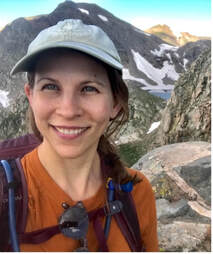
Sarah Becker
Contact: Sarah.Becker-2[at]colorado.edu
Sarah is a PhD student in the Environmental Studies Program at the University of Colorado Boulder. Originally from Charlottesville, Virginia, Sarah received a B.A. in Environmental Studies from Vassar College in 2009 and a M.S. in Marine Science and Technology from the University of Massachusetts Amherst in 2016. Between her undergraduate and Master’s studies, Sarah worked for several years as a field technician, scientific diver, and environmental educator in the Caribbean and Bahamas. Following her Masters, she worked as a data analyst at the Monterey Bay Aquarium and Gulf of Maine Research Institute on projects ranging from quantifying Pacific sea turtle distributions to Atlantic cod and bluefin tuna population assessments. Sarah’s current research examines seabird distributions in the Southern Ocean, and seeks to determine how albatross species are modifying foraging activity under climate change, and how management interventions such as increased regulation of fisheries bycatch can support recovery of threatened populations. Check out her publications here.
Contact: Sarah.Becker-2[at]colorado.edu
Sarah is a PhD student in the Environmental Studies Program at the University of Colorado Boulder. Originally from Charlottesville, Virginia, Sarah received a B.A. in Environmental Studies from Vassar College in 2009 and a M.S. in Marine Science and Technology from the University of Massachusetts Amherst in 2016. Between her undergraduate and Master’s studies, Sarah worked for several years as a field technician, scientific diver, and environmental educator in the Caribbean and Bahamas. Following her Masters, she worked as a data analyst at the Monterey Bay Aquarium and Gulf of Maine Research Institute on projects ranging from quantifying Pacific sea turtle distributions to Atlantic cod and bluefin tuna population assessments. Sarah’s current research examines seabird distributions in the Southern Ocean, and seeks to determine how albatross species are modifying foraging activity under climate change, and how management interventions such as increased regulation of fisheries bycatch can support recovery of threatened populations. Check out her publications here.
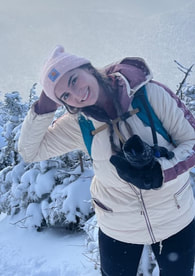
Brooke Chase
Contact: Brooke.Chase[at]colorado.edu
Brooke is a first-year Ph.D. student in the Environmental Studies Program at the University of Colorado Boulder. She will be working within INSTAAR’s Stable Isotope Lab (SIL), studying water isotopes found in ice cores to understand extreme climate event behaviors. Prior to CU, Brooke lived in Buffalo, NY, where she received her B.S. in Geology at the University at Buffalo (2022). Throughout her undergraduate studies, she worked on a paleoclimate project with Dr. Jason Briner (University at Buffalo), which utilized sediment cores to better constrain the timing of the recession of the Laurentide Ice Sheet following the Last Glacial Maximum out of Western New York. Furthermore, Brooke hopes to contribute to science communication to help shape environmental policy and extend the impacts her research has on society. Outside of academics, Brooke enjoys hiking, snowboarding, and climbing.
Contact: Brooke.Chase[at]colorado.edu
Brooke is a first-year Ph.D. student in the Environmental Studies Program at the University of Colorado Boulder. She will be working within INSTAAR’s Stable Isotope Lab (SIL), studying water isotopes found in ice cores to understand extreme climate event behaviors. Prior to CU, Brooke lived in Buffalo, NY, where she received her B.S. in Geology at the University at Buffalo (2022). Throughout her undergraduate studies, she worked on a paleoclimate project with Dr. Jason Briner (University at Buffalo), which utilized sediment cores to better constrain the timing of the recession of the Laurentide Ice Sheet following the Last Glacial Maximum out of Western New York. Furthermore, Brooke hopes to contribute to science communication to help shape environmental policy and extend the impacts her research has on society. Outside of academics, Brooke enjoys hiking, snowboarding, and climbing.
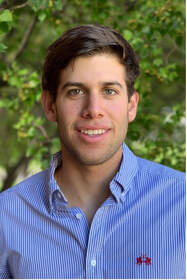
Vasco Chavez-Molina
Contact: Vasco.Chavezmolina[at]colorado.edu
Vasco Chavez-Molina is a PhD candidate at the University of Colorado Boulder. His dissertation rests at the intersection of science and policy and focuses on the management of fisheries and ecosystems in areas beyond national jurisdiction (ABNJ) also known as the high seas. Vascos research primarily centers on United Nations Conservation frameworks and regional sea conventions such as the Commission for the Conservation of Antarctic Marine Living Resources (CCAMLR) and the South Pacific Regional Fisheries Management Organization (SPRFMO). Born and raised in Lima, Peru, Vasco moved to the States when he was 18 to attend College of the Holy Cross in Worcester, Massachusetts. He has a double major in environmental studies and anthropology with a concentration in African studies. He also holds a master’s degree in Environmental Policy from the University of Colorado Boulder. Vasco previously worked for Defenders of Wildlife in Washington D.C. as their International Conservation Associate and more recently for the Governors’ Climate and Forest Task Force as a Research Consultant. Check out his publications here.
Contact: Vasco.Chavezmolina[at]colorado.edu
Vasco Chavez-Molina is a PhD candidate at the University of Colorado Boulder. His dissertation rests at the intersection of science and policy and focuses on the management of fisheries and ecosystems in areas beyond national jurisdiction (ABNJ) also known as the high seas. Vascos research primarily centers on United Nations Conservation frameworks and regional sea conventions such as the Commission for the Conservation of Antarctic Marine Living Resources (CCAMLR) and the South Pacific Regional Fisheries Management Organization (SPRFMO). Born and raised in Lima, Peru, Vasco moved to the States when he was 18 to attend College of the Holy Cross in Worcester, Massachusetts. He has a double major in environmental studies and anthropology with a concentration in African studies. He also holds a master’s degree in Environmental Policy from the University of Colorado Boulder. Vasco previously worked for Defenders of Wildlife in Washington D.C. as their International Conservation Associate and more recently for the Governors’ Climate and Forest Task Force as a Research Consultant. Check out his publications here.
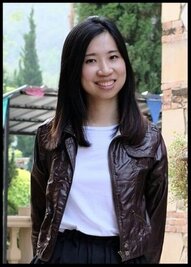
Rawinorn Dulyakasem
Contact: Rawinorn.Dulyakasem[at]colorado.edu
Rawinorn is a Ph.D. student in the Environmental Studies Program at the University of Colorado Boulder. Prior to studying at CU Boulder, Rawinorn worked at the Ministry of Natural Resources and Environment in Thailand. In the past few years, She worked with international organizations dealing with environmental issues under United Nations. Rawinorn has a M.S. in International Studies from the Institute of the Pacific United in New Zealand and a BS in Biology from Mahidol University in Thailand. Her academic interest are in natural resources and environmental management. In particular, she is interested in environmental policy, and hopes to be a part of the process to formulate a national policy on natural resources and environment to protect and nurture natural resources and environment for healthy and livable society.
Contact: Rawinorn.Dulyakasem[at]colorado.edu
Rawinorn is a Ph.D. student in the Environmental Studies Program at the University of Colorado Boulder. Prior to studying at CU Boulder, Rawinorn worked at the Ministry of Natural Resources and Environment in Thailand. In the past few years, She worked with international organizations dealing with environmental issues under United Nations. Rawinorn has a M.S. in International Studies from the Institute of the Pacific United in New Zealand and a BS in Biology from Mahidol University in Thailand. Her academic interest are in natural resources and environmental management. In particular, she is interested in environmental policy, and hopes to be a part of the process to formulate a national policy on natural resources and environment to protect and nurture natural resources and environment for healthy and livable society.

Elizabeth Francis
Contact: Elizabeth.Francis[at]colorado.edu
Elizabeth Francis is a PhD student at the University of Colorado Boulder. Elizabeth works at Fair Carbon as the Director of Blue Carbon Project Development. She develops tools, resources, and guidance for ocean and coastal restoration projects to access carbon financing. Her previous work focused on assessing carbon sequestration pathways in marine protected areas and integrating coastal nature-based solutions to climate change in international law. She more recently worked with Conservation International and other international organizations on blue carbon policy and international law. Elizabeth has an M.A. in International Environmental Policy for Ocean and Coastal Resource Management from the Middlebury Institute of International Studies and a B.A.S. in Marine Science and Political Science from Quest University Canada. Her research interests include the intersection of marine science and international law, blue carbon policy, community engagement, and biodiversity and carbon credit finance.
Contact: Elizabeth.Francis[at]colorado.edu
Elizabeth Francis is a PhD student at the University of Colorado Boulder. Elizabeth works at Fair Carbon as the Director of Blue Carbon Project Development. She develops tools, resources, and guidance for ocean and coastal restoration projects to access carbon financing. Her previous work focused on assessing carbon sequestration pathways in marine protected areas and integrating coastal nature-based solutions to climate change in international law. She more recently worked with Conservation International and other international organizations on blue carbon policy and international law. Elizabeth has an M.A. in International Environmental Policy for Ocean and Coastal Resource Management from the Middlebury Institute of International Studies and a B.A.S. in Marine Science and Political Science from Quest University Canada. Her research interests include the intersection of marine science and international law, blue carbon policy, community engagement, and biodiversity and carbon credit finance.
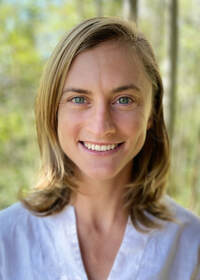
Clare Gallagher
Contact: Clare.Gallagher[at]colorado.edu
Clare is a first-year PhD student studying Antarctic toothfish and marine protection areas with Dr. Brooks. More broadly, Clare is interested in how incorporating biology into international policy can better protect ocean ecosystems. Clare graduated from Princeton University in 2014 with a degree in Ecology and Evolutionary Biology and a certificate in Environmental Studies. For her senior thesis, she worked with Dr. Christopher Doropolous (University of Queensland, Australia) in Palau, where they found that crevices in the reef structure can act as spatial refugia for certain juvenile corals, enhancing survival from predation by coral-eating fish. After graduating, Clare started a swim and marine education program in Southern Thailand where she taught English as a Princeton in Asia fellow. More recently, Clare has been running ultramarathons professionally and advocating for climate policy. When she's not reading or running, you can find Clare daydreaming about freediving.
Contact: Clare.Gallagher[at]colorado.edu
Clare is a first-year PhD student studying Antarctic toothfish and marine protection areas with Dr. Brooks. More broadly, Clare is interested in how incorporating biology into international policy can better protect ocean ecosystems. Clare graduated from Princeton University in 2014 with a degree in Ecology and Evolutionary Biology and a certificate in Environmental Studies. For her senior thesis, she worked with Dr. Christopher Doropolous (University of Queensland, Australia) in Palau, where they found that crevices in the reef structure can act as spatial refugia for certain juvenile corals, enhancing survival from predation by coral-eating fish. After graduating, Clare started a swim and marine education program in Southern Thailand where she taught English as a Princeton in Asia fellow. More recently, Clare has been running ultramarathons professionally and advocating for climate policy. When she's not reading or running, you can find Clare daydreaming about freediving.
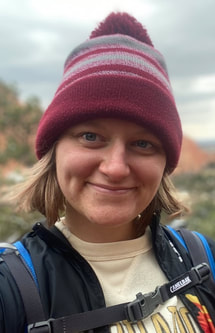
Hayley Kwasniewski
Contact: Hayley.Kwasniewski[at]colorado.edu
Hayley (they/them) is a PhD candidate at the University of Colorado-Boulder. After receiving a B.A. in biochemistry with minors in gender studies and earth sciences from Indiana University-Bloomington, Hayley worked at the interface of grassroots movements, climate resilience, and policy formulation and advocacy. From collaborating with food security networks in rural Colorado to preparing Denver for increasing urban heat island effect, Hayley particularly enjoyed learning about foundational species and what they could tell us about ecosystem health, human impacts, and climate change. At the same time, they received an M.S. in environmental science and policy from Johns Hopkins University, researching pollinator species prevalence and ecosystem health in different urban settings. Excitedly different from cities, Hayley will apply this knowledge to the Antarctic toothfish. This keystone species may elucidate impacts of climate change and conservation efforts within the Ross Sea Region. Hayley is particularly interested in seeing if a connection exists between the potential alterations of oceanic currents due to climate change, and how that could manifest into the Antarctic toothfish life cycle movements. They are also very passionate about taking knowledge and turning it into action with plans to share research findings with key Antarctic conservation stakeholders. In their free time, you can find Hayley with their dogs, attempting urban foraging recipes, or rock climbing.
Contact: Hayley.Kwasniewski[at]colorado.edu
Hayley (they/them) is a PhD candidate at the University of Colorado-Boulder. After receiving a B.A. in biochemistry with minors in gender studies and earth sciences from Indiana University-Bloomington, Hayley worked at the interface of grassroots movements, climate resilience, and policy formulation and advocacy. From collaborating with food security networks in rural Colorado to preparing Denver for increasing urban heat island effect, Hayley particularly enjoyed learning about foundational species and what they could tell us about ecosystem health, human impacts, and climate change. At the same time, they received an M.S. in environmental science and policy from Johns Hopkins University, researching pollinator species prevalence and ecosystem health in different urban settings. Excitedly different from cities, Hayley will apply this knowledge to the Antarctic toothfish. This keystone species may elucidate impacts of climate change and conservation efforts within the Ross Sea Region. Hayley is particularly interested in seeing if a connection exists between the potential alterations of oceanic currents due to climate change, and how that could manifest into the Antarctic toothfish life cycle movements. They are also very passionate about taking knowledge and turning it into action with plans to share research findings with key Antarctic conservation stakeholders. In their free time, you can find Hayley with their dogs, attempting urban foraging recipes, or rock climbing.
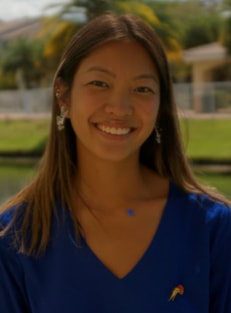
Rose Leeger
Contact: Rose.Leeger[at]colorado.edu
Rose is a first-year PhD student studying Antarctic toothfish and how otolith chemistry can be integrated with policy decisions made in marine protected areas. Rose graduated from Nova Southeastern University last May where she triple majored in Marine Biology, Environmental Science, and Biology. For her honors thesis she worked with Dr. J. Matt Hoch looking at hybridization seen in Everglades fish through morphometric and behavioral analysis. She is also a recipient of the NOAA Educational Partnership Program for Minority Serving Institutions (EPP/MSI) Scholarship where she has been able to hold two internships at NOAA science centers. Her first internship explored the use of science communication and oyster probiotics with NOAA Headquarters Office of Aquaculture and her second internship was with the Antarctic Ecosystem Research Division (AERD) creating an algorithm for machine learning to identify penguin populations from drone imagery. In her free time, Rose likes to scuba dive, ski, and hang out with her cat, Peanut.
Contact: Rose.Leeger[at]colorado.edu
Rose is a first-year PhD student studying Antarctic toothfish and how otolith chemistry can be integrated with policy decisions made in marine protected areas. Rose graduated from Nova Southeastern University last May where she triple majored in Marine Biology, Environmental Science, and Biology. For her honors thesis she worked with Dr. J. Matt Hoch looking at hybridization seen in Everglades fish through morphometric and behavioral analysis. She is also a recipient of the NOAA Educational Partnership Program for Minority Serving Institutions (EPP/MSI) Scholarship where she has been able to hold two internships at NOAA science centers. Her first internship explored the use of science communication and oyster probiotics with NOAA Headquarters Office of Aquaculture and her second internship was with the Antarctic Ecosystem Research Division (AERD) creating an algorithm for machine learning to identify penguin populations from drone imagery. In her free time, Rose likes to scuba dive, ski, and hang out with her cat, Peanut.
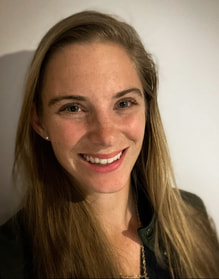
Zephyr Sylvester
Contact: Zephyr.Sylvester[at]colorado.edu
Zephyr is a PhD student in the Environmental Studies Program at the University of Colorado-Boulder studying the impacts of climate change on the marine ecosystem in the Southern Ocean. Using Earth System Models, Antarctic krill models, and oceanographic data, Zephyr's research is focused on understanding how climate variability and change impact bottom-up mechanisms that are important for driving ecosystem dynamics. In addition to her work on krill, Zephyr also studies how science is used to design marine resource management policies in the Southern Ocean. In this vein, Zephyr's work is also focused on understanding what regions of the Southern Ocean have the most conservation value. In 2020, Zephyr received her masters from CU Boulder by studying the influences of climate change on projections of krill growth rates. Prior to arriving at CU Boulder, she worked as an environmental analyst at the San Francisco Estuary Institute where she led two field programs for long-term monitoring programs as a part of the Nutrient Management Strategy Observation Program. She completed her undergraduate in Biology and Environmental Studies at Whitman College.
Contact: Zephyr.Sylvester[at]colorado.edu
Zephyr is a PhD student in the Environmental Studies Program at the University of Colorado-Boulder studying the impacts of climate change on the marine ecosystem in the Southern Ocean. Using Earth System Models, Antarctic krill models, and oceanographic data, Zephyr's research is focused on understanding how climate variability and change impact bottom-up mechanisms that are important for driving ecosystem dynamics. In addition to her work on krill, Zephyr also studies how science is used to design marine resource management policies in the Southern Ocean. In this vein, Zephyr's work is also focused on understanding what regions of the Southern Ocean have the most conservation value. In 2020, Zephyr received her masters from CU Boulder by studying the influences of climate change on projections of krill growth rates. Prior to arriving at CU Boulder, she worked as an environmental analyst at the San Francisco Estuary Institute where she led two field programs for long-term monitoring programs as a part of the Nutrient Management Strategy Observation Program. She completed her undergraduate in Biology and Environmental Studies at Whitman College.
CURRENT UNDERGRADUATE HONORS STUDENTS
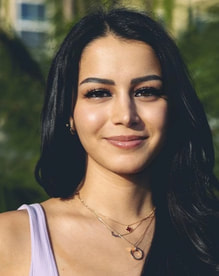
Melina Farahmand
Contact: melina.farahmand[at]colorado.edu
California native Melina Farahmand is an undergraduate student at the University of Colorado Boulder, double majoring in Political Science and Environmental Studies. Her research interests include public policy, environmental justice, ocean conservation, and finding solutions to build Antarctic resilience against climate change. Melina is a 2x published author and journalist. She is also the founder of Past Present Future Co and the executive director of Guardians of Our Democracy, a voting rights initiative. In July 2022, she was inducted into the United States Martial Arts Hall of Fame as an honorable martial artist.
Contact: melina.farahmand[at]colorado.edu
California native Melina Farahmand is an undergraduate student at the University of Colorado Boulder, double majoring in Political Science and Environmental Studies. Her research interests include public policy, environmental justice, ocean conservation, and finding solutions to build Antarctic resilience against climate change. Melina is a 2x published author and journalist. She is also the founder of Past Present Future Co and the executive director of Guardians of Our Democracy, a voting rights initiative. In July 2022, she was inducted into the United States Martial Arts Hall of Fame as an honorable martial artist.
FORMER GRADUATE STUDENTS
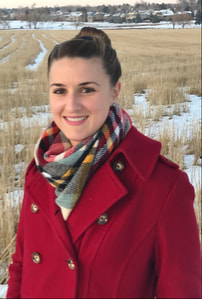
Diana Dorman
Contact: Diana.Dorman[at]colorado.edu
Diana Dorman is a Ph.D. Candidate in the Environmental Studies Program at the University of Colorado Boulder. Her research interests focus on the intersection of energy justice, international climate finance, and sustainable development. Diana's dissertation research uses qualitative and quantitative methods to investigate the role public climate finance plays in the equitable development of renewable energy in the developing world. Before coming to CU, Diana worked in several nonprofit organizations including in Malaysia on issues of sustainability and social justice in the palm oil industry, in Nevada on renewable energy advocacy and development at the state legislature, and in fundraising and project management for environmental improvement projects in the Lake Tahoe Basin. Diana completed her M.S. in Environmental Studies in 2019 at CU Boulder where her thesis investigated the funding trends of energy projects and related policy linkages within the Green Climate Fund, the newest climate finance mechanism under the United Nations Framework Convention on Climate Change. Originally from Nevada, Diana has a B.A. in International Affairs and a B.S. in Environmental Science with minors in Italian Studies and Renewable Energy Policy from the University of Nevada, Reno.
Contact: Diana.Dorman[at]colorado.edu
Diana Dorman is a Ph.D. Candidate in the Environmental Studies Program at the University of Colorado Boulder. Her research interests focus on the intersection of energy justice, international climate finance, and sustainable development. Diana's dissertation research uses qualitative and quantitative methods to investigate the role public climate finance plays in the equitable development of renewable energy in the developing world. Before coming to CU, Diana worked in several nonprofit organizations including in Malaysia on issues of sustainability and social justice in the palm oil industry, in Nevada on renewable energy advocacy and development at the state legislature, and in fundraising and project management for environmental improvement projects in the Lake Tahoe Basin. Diana completed her M.S. in Environmental Studies in 2019 at CU Boulder where her thesis investigated the funding trends of energy projects and related policy linkages within the Green Climate Fund, the newest climate finance mechanism under the United Nations Framework Convention on Climate Change. Originally from Nevada, Diana has a B.A. in International Affairs and a B.S. in Environmental Science with minors in Italian Studies and Renewable Energy Policy from the University of Nevada, Reno.
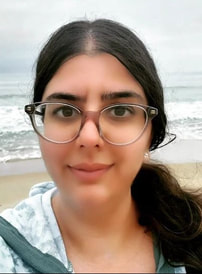
www.researchgate.net/scientific-contributions/Emily-S-Nocito-2148519946Emily Nocito
Contact: Emily.Nocito[at]colorado.edu
Emily Nocito (she/her) is a Ph.D. candidate in the Environmental Studies Program at the University of Colorado- Boulder. A New Jersey native, she received her BS from Stony Brook University in Coastal Sciences (2016) with a concentration in Ecosystems and Human Impact. She went on and received her MS from the University of Maine in Marine Policy (2018), where she studied marine protected areas in areas beyond national jurisdiction. She was the recipient of the Millennium Oceans Prize (2015) and founder of 10 by 2020, a youth-led NGO focused on ocean education and literacy. She is a JFEW Global Scholars alumna, and has worked with the United Nations Major Group for Children and Youth. Her research interests include marine sciences, environmental law and policy, international environmental policy and the sustainable development goals. For her PhD, which she finished in 2023, Emily studied high seas conservation and governance via the BBNJ Agreement that was negotiated at the United Nations, and the emergence of high seas marine protected areas through the lens of Antarctica and the North East Atlantic. Check out her publications here. For more information on her work, please visiting www.emilynocito.com
Contact: Emily.Nocito[at]colorado.edu
Emily Nocito (she/her) is a Ph.D. candidate in the Environmental Studies Program at the University of Colorado- Boulder. A New Jersey native, she received her BS from Stony Brook University in Coastal Sciences (2016) with a concentration in Ecosystems and Human Impact. She went on and received her MS from the University of Maine in Marine Policy (2018), where she studied marine protected areas in areas beyond national jurisdiction. She was the recipient of the Millennium Oceans Prize (2015) and founder of 10 by 2020, a youth-led NGO focused on ocean education and literacy. She is a JFEW Global Scholars alumna, and has worked with the United Nations Major Group for Children and Youth. Her research interests include marine sciences, environmental law and policy, international environmental policy and the sustainable development goals. For her PhD, which she finished in 2023, Emily studied high seas conservation and governance via the BBNJ Agreement that was negotiated at the United Nations, and the emergence of high seas marine protected areas through the lens of Antarctica and the North East Atlantic. Check out her publications here. For more information on her work, please visiting www.emilynocito.com
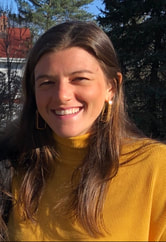
Casey White
Contact: Casey.White-1[at]colorado.edu
Casey White completed her M.S. in the Environmental Studies Program at the University of Colorado-Boulder in 2021. Prior to CU, she received her B.S. in Environmental Science from the University of Denver, where she studied human-environment interactions and marine conservation. After graduation from DU, Casey started working for an environmental consulting firm as an Associate Scientist, where she worked on a variety of projects ranging from environmental impact statements to corporate sustainability reports. At CU, Casey studied the impacts of climate change on marine protected areas, as well as marine conservation and sustainability at large. Check out her M.S. thesis entitled The bridging role of non-governmental organizations in the planning, adoption, and management of the marine protected area network in Raja Ampat, Indonesia
Contact: Casey.White-1[at]colorado.edu
Casey White completed her M.S. in the Environmental Studies Program at the University of Colorado-Boulder in 2021. Prior to CU, she received her B.S. in Environmental Science from the University of Denver, where she studied human-environment interactions and marine conservation. After graduation from DU, Casey started working for an environmental consulting firm as an Associate Scientist, where she worked on a variety of projects ranging from environmental impact statements to corporate sustainability reports. At CU, Casey studied the impacts of climate change on marine protected areas, as well as marine conservation and sustainability at large. Check out her M.S. thesis entitled The bridging role of non-governmental organizations in the planning, adoption, and management of the marine protected area network in Raja Ampat, Indonesia
FORMER UNDERGRADUATE HONORS STUDENTS

Nora Apelgren
Contact: Nora.Apelgren[at]colorado.edu
Nora is an international student from Norway passionate about all things environment. As a double major in Environmental Studies and Ecology and Evolutionary Biology at the University of Colorado-Boulder, she is interested in both environmental policy and environmental science and hopes to educate herself so that she can help make a difference towards a more sustainable future. When she is not studying Nora loves being outdoors, skiing, running, doing yoga, swimming, hiking, trying new sports, traveling and cooking/trying new healthy sustainable foods. Nora completed her honors thesis in 2020 on Norwegian Interests and Participationtowards the creation of Marine Protected areas in the Southern Ocean.
Contact: Nora.Apelgren[at]colorado.edu
Nora is an international student from Norway passionate about all things environment. As a double major in Environmental Studies and Ecology and Evolutionary Biology at the University of Colorado-Boulder, she is interested in both environmental policy and environmental science and hopes to educate herself so that she can help make a difference towards a more sustainable future. When she is not studying Nora loves being outdoors, skiing, running, doing yoga, swimming, hiking, trying new sports, traveling and cooking/trying new healthy sustainable foods. Nora completed her honors thesis in 2020 on Norwegian Interests and Participationtowards the creation of Marine Protected areas in the Southern Ocean.
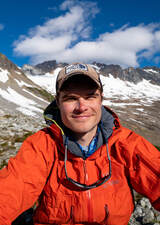
Jack Barker
Contact: Jack.Barker[at]colorado.edu
Jack Barker completed his B.A. in Environmental Studies with a minor in Atmospheric and Oceanic Studies as well as Geography University of Colorado-Boulder. His research focused on the social and economic impacts of wind energy projects in rural communities, and the implications for national energy policy. His interests include renewable energy development, climate resiliency, and the intersection between policy and the transition to a net-zero grid. When he is not in class, you can find him climbing, skiing, or riding his bike. His passion for the outdoors fuels his drive to pursue a career in the energy sector, pushing for a green, clean, and equitable future. In 2022, Jack completed his honors thesis Where the wind blows: How policy and stakeholder cooperation have powered wind growth in Texas & Iowa.
Contact: Jack.Barker[at]colorado.edu
Jack Barker completed his B.A. in Environmental Studies with a minor in Atmospheric and Oceanic Studies as well as Geography University of Colorado-Boulder. His research focused on the social and economic impacts of wind energy projects in rural communities, and the implications for national energy policy. His interests include renewable energy development, climate resiliency, and the intersection between policy and the transition to a net-zero grid. When he is not in class, you can find him climbing, skiing, or riding his bike. His passion for the outdoors fuels his drive to pursue a career in the energy sector, pushing for a green, clean, and equitable future. In 2022, Jack completed his honors thesis Where the wind blows: How policy and stakeholder cooperation have powered wind growth in Texas & Iowa.
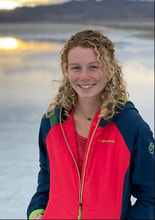
Mara Booth
Contact: Mara.Booth[at]colorado.edu
Mara attended the College of the Holy Cross before transferring to Boulder. She obtained her B.A. in Environmental Studies with minors in Atmospheric and Oceanic Studies and Business. Her research focused on a unique Marine Spatial Plan founded in the Seychelles and investigates the efficacy of debt swaps and social governance structures in such protection plans. Outside of her academics, Mara has spent many years pursuing sailing and SCUBA diving professions and works in the Caribbean seasonally. Her Colorado interests include skiing, hiking, climbing, and biking. She hopes to continue forward in the sustainability and conservation field in the coming years. In 2021, Mara completed her honors thesis Financing Marine Conservation Restructured Debt: A Case Study of the Seychelles.
Contact: Mara.Booth[at]colorado.edu
Mara attended the College of the Holy Cross before transferring to Boulder. She obtained her B.A. in Environmental Studies with minors in Atmospheric and Oceanic Studies and Business. Her research focused on a unique Marine Spatial Plan founded in the Seychelles and investigates the efficacy of debt swaps and social governance structures in such protection plans. Outside of her academics, Mara has spent many years pursuing sailing and SCUBA diving professions and works in the Caribbean seasonally. Her Colorado interests include skiing, hiking, climbing, and biking. She hopes to continue forward in the sustainability and conservation field in the coming years. In 2021, Mara completed her honors thesis Financing Marine Conservation Restructured Debt: A Case Study of the Seychelles.

Annika Cobb
Contact: Annika.Cobb[at]colorado.edu
Annika is an undergraduate studying Environmental Studies with a minor in Spanish at CU Boulder. She is interested in studying international governing bodies and how effective they are in achieving environmental conservation and sustainable development. Annika completed her honors thesis in 2020 on Indigenous Inclusion in Forest Solutions and Human Rights in Carbon Markets.
Contact: Annika.Cobb[at]colorado.edu
Annika is an undergraduate studying Environmental Studies with a minor in Spanish at CU Boulder. She is interested in studying international governing bodies and how effective they are in achieving environmental conservation and sustainable development. Annika completed her honors thesis in 2020 on Indigenous Inclusion in Forest Solutions and Human Rights in Carbon Markets.
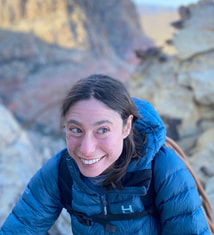
Jackie Florman
Contact: [email protected]
Jackie Florman is a senior honors student in Environmental Studies and Ecology and Evolutionary Biology at the University of Colorado, Boulder. Jackie was born in southern California, but has most recently lived in central Maine and the eastern Sierra Nevada. Jackie is an avid climber, backcountry snowboarder, and trail runner. She spends her summer season as an outdoor educator, guiding multi week backpacking trips with youth in Yosemite National Park. Her thesis work is part of the Arctic Rivers Project, which aims to integrate Indigenous knowledge and western scientific knowledge to monitor climate, rivers, and fish Alaska and the Yukon. She will be focussed on co-production of knowledge through participatory mapping with Indigenous communities in the region. Her interests include environmental justice, conservation in alpine and Arctic environments, and land use issues. Jackie completed her honors thesis in 2023 on Co-production and collaboration: Examining the application of co-production of knowledge principles and practices at the Arctic Rivers Summit in Anchorage, Alaska.
Contact: [email protected]
Jackie Florman is a senior honors student in Environmental Studies and Ecology and Evolutionary Biology at the University of Colorado, Boulder. Jackie was born in southern California, but has most recently lived in central Maine and the eastern Sierra Nevada. Jackie is an avid climber, backcountry snowboarder, and trail runner. She spends her summer season as an outdoor educator, guiding multi week backpacking trips with youth in Yosemite National Park. Her thesis work is part of the Arctic Rivers Project, which aims to integrate Indigenous knowledge and western scientific knowledge to monitor climate, rivers, and fish Alaska and the Yukon. She will be focussed on co-production of knowledge through participatory mapping with Indigenous communities in the region. Her interests include environmental justice, conservation in alpine and Arctic environments, and land use issues. Jackie completed her honors thesis in 2023 on Co-production and collaboration: Examining the application of co-production of knowledge principles and practices at the Arctic Rivers Summit in Anchorage, Alaska.
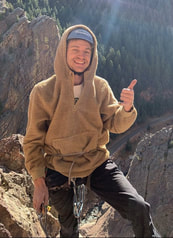
Seth Greer
Contact: [email protected]
Seth is a senior undergraduate student with a double major in Environmental Studies and Geography with a focus on Global Information Systems (GIS). His thesis focuses on communal land governance, particularly Indigenous land, in the Brazilian Amazon Basin and how these spaces correspond with conservation. Seth hopes to pursue similar studies after graduation, focusing on the use of GIS analytics to study and advocate for Indigenous land tenure in Brazil and elsewhere. Hailing from Estes Park, Colorado, Seth’s passion for the human-environment matrix started in high school, and he still draws inspiration from outdoor experiences, particularly climbing, backpacking, and skiing. Seth completed his honors thesis in 2022 on Indigenous lands, protected areas, and political ecology: A GIS-supported analysis of conservation and land rights in the Brazilian Amazon.
Contact: [email protected]
Seth is a senior undergraduate student with a double major in Environmental Studies and Geography with a focus on Global Information Systems (GIS). His thesis focuses on communal land governance, particularly Indigenous land, in the Brazilian Amazon Basin and how these spaces correspond with conservation. Seth hopes to pursue similar studies after graduation, focusing on the use of GIS analytics to study and advocate for Indigenous land tenure in Brazil and elsewhere. Hailing from Estes Park, Colorado, Seth’s passion for the human-environment matrix started in high school, and he still draws inspiration from outdoor experiences, particularly climbing, backpacking, and skiing. Seth completed his honors thesis in 2022 on Indigenous lands, protected areas, and political ecology: A GIS-supported analysis of conservation and land rights in the Brazilian Amazon.
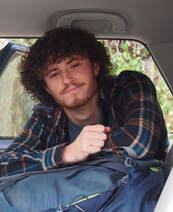
Josh Lipson
Contact: Josh.Lipson[at]colorado.edu
Josh completed a double major in the environmental studies and economics programs at CU Boulder. He is particularly passionate about ecology, environmental justice and environmental education, as well as analyzing social problems through an environmental lens. Josh pursued these passions in his research on the salmon fishery social-ecological system in the Columbia river basin, through the lens of colonialism and the differing salmon management of Indigenous tribes and westerners. In his free time, Josh enjoys rock climbing, hiking, mountaineering and any other activity that involves spending time in the natural world. Josh is also an aspiring gardener, home chef and piano player. Josh completed his honors thesis in 2022 on A Glimpse into the Loss of Salmon Populations in the Columbia River Basin and the Case for Incorporating Traditional Indigenous Management in Restoration.
Contact: Josh.Lipson[at]colorado.edu
Josh completed a double major in the environmental studies and economics programs at CU Boulder. He is particularly passionate about ecology, environmental justice and environmental education, as well as analyzing social problems through an environmental lens. Josh pursued these passions in his research on the salmon fishery social-ecological system in the Columbia river basin, through the lens of colonialism and the differing salmon management of Indigenous tribes and westerners. In his free time, Josh enjoys rock climbing, hiking, mountaineering and any other activity that involves spending time in the natural world. Josh is also an aspiring gardener, home chef and piano player. Josh completed his honors thesis in 2022 on A Glimpse into the Loss of Salmon Populations in the Columbia River Basin and the Case for Incorporating Traditional Indigenous Management in Restoration.

Izzy Sofio
Contact: Isabella.Sofio[at]colorado.edu
Izzy completed her honors thesis in 2020 on How Does Climate Change Content on Social Media Influence Individual Pro-environmental Behaviors?
Contact: Isabella.Sofio[at]colorado.edu
Izzy completed her honors thesis in 2020 on How Does Climate Change Content on Social Media Influence Individual Pro-environmental Behaviors?
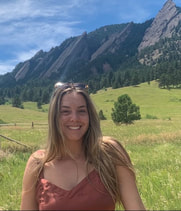
Virginia Weiskopf
Contact: Virginia.Weiskopf[at]colorado.edu
Virginia Weiskopf is currently a senior in Environmental Studies with two minors in Political Science and Atmosphere and Ocean Science. She grew up in Telluride, CO which sparked her interest for the environment and love of planet Earth. She's interested in ocean protection, environmental law, and the study of ecosystems and natural resources. Her research is focused on understanding international ocean protection, especially in the high seas and in the waters around Antarctica. She also enjoys going to the gym, being out in nature, and reading a good novel. Virginia completed her honors thesis in 2023 on The relationship between CCAMLR and UN agreements in the context of representative systems of marine protected areas.
Contact: Virginia.Weiskopf[at]colorado.edu
Virginia Weiskopf is currently a senior in Environmental Studies with two minors in Political Science and Atmosphere and Ocean Science. She grew up in Telluride, CO which sparked her interest for the environment and love of planet Earth. She's interested in ocean protection, environmental law, and the study of ecosystems and natural resources. Her research is focused on understanding international ocean protection, especially in the high seas and in the waters around Antarctica. She also enjoys going to the gym, being out in nature, and reading a good novel. Virginia completed her honors thesis in 2023 on The relationship between CCAMLR and UN agreements in the context of representative systems of marine protected areas.
